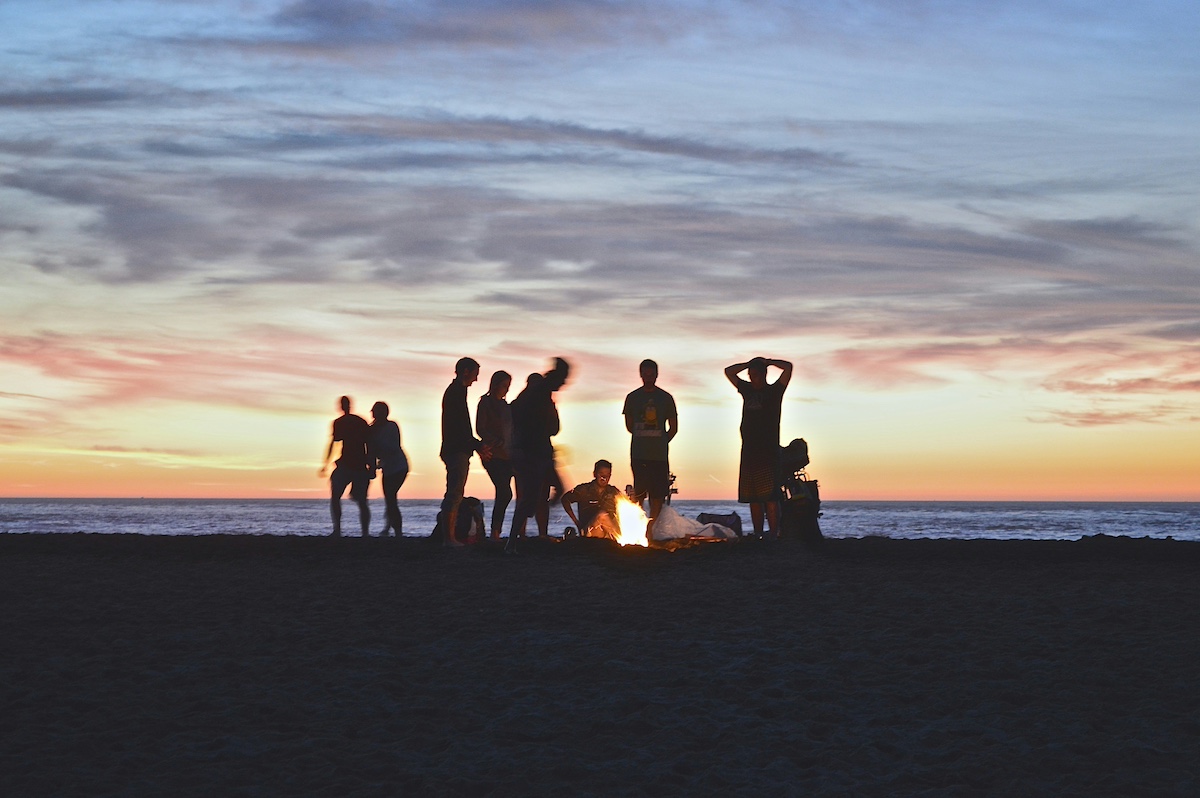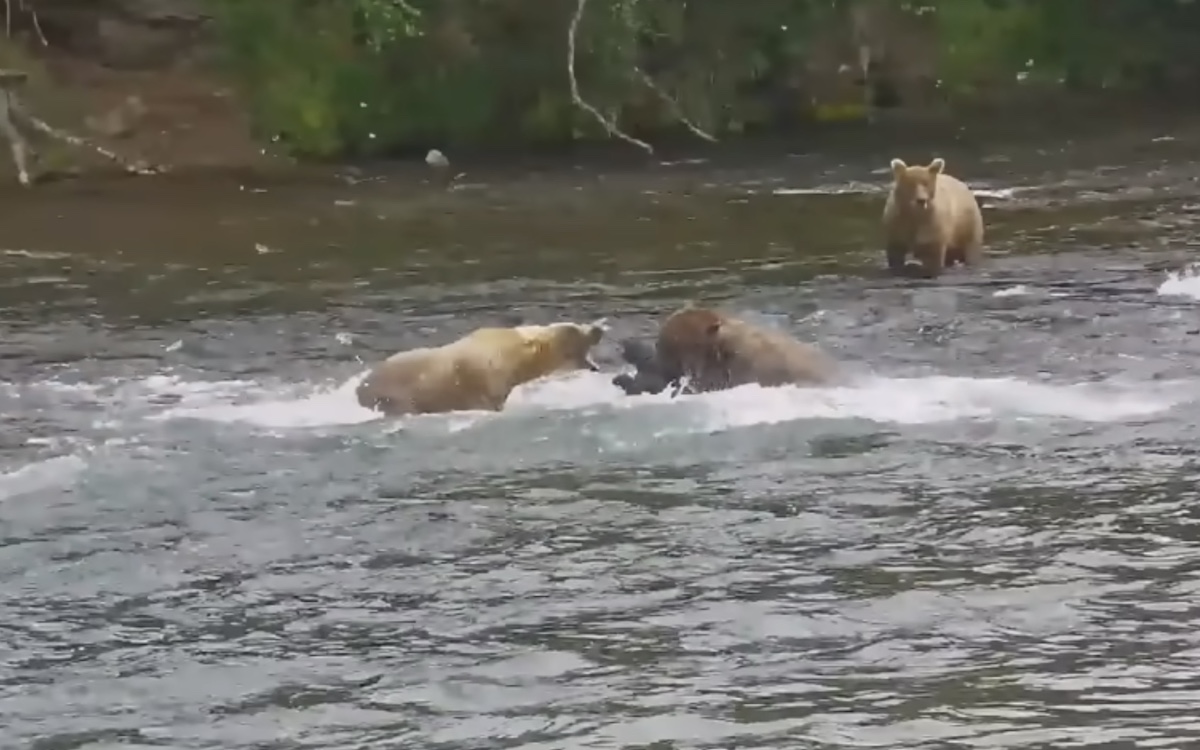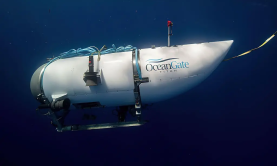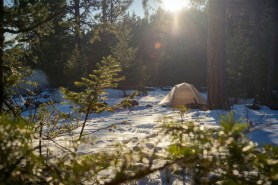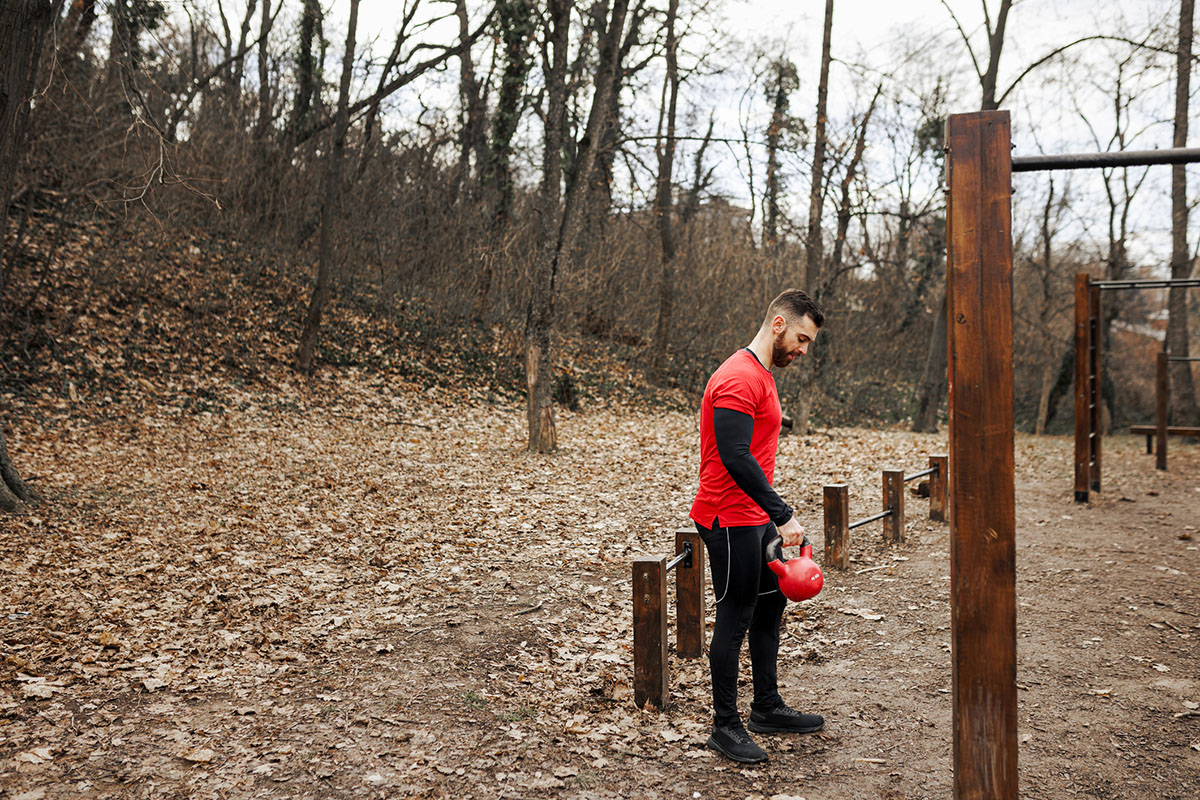

The lazy days of summer are all but gone, so now’s a great time to take stock of your fitness plan and get ready for colder weather activities. Whether it’s scaling mountain peaks, embarking on epic fall-foliage hikes and bike rides or flying down the slopes, building muscle can be a real game-changer for outdoor endeavors. Here are five essential strategies for boosting muscle before the adventures begin.
Videos by Outdoors with Bear Grylls
1. Set Goals and Track Progress

A successful muscle-building routine begins before you even hit the gym. It’s crucial to establish clear objectives and monitor progress along the way. By setting targets, you’ll stay focused and motivated, not to mention accountable. Don’t go overboard, though — goals should be simple and measurable within a specified timeframe.
2. Customize Workouts

Take stock of the type of upcoming adventures on your list and use that as a springboard to tailor workouts and prioritize the right muscle groups. Hikers, for example, should focus on leg strength and endurance, while climbers can hone the upper body and core. Functional exercises that simulate adventure-specific movements — think rock climbing walls for mountaineers or step-ups with a weighted backpack for extreme hikers — will boost performance and minimize the risk of injuries.
3. Enhance Flexibility and Mobility

Before you flex, it’s key to do dynamic warm-ups that help prepare both muscles and joints for action. Improving flexibility and mobility through stretching, yoga, and other exercises is vital for outdoor adventures that require precise movements or navigating uneven terrain.
4. Embrace Strength Training
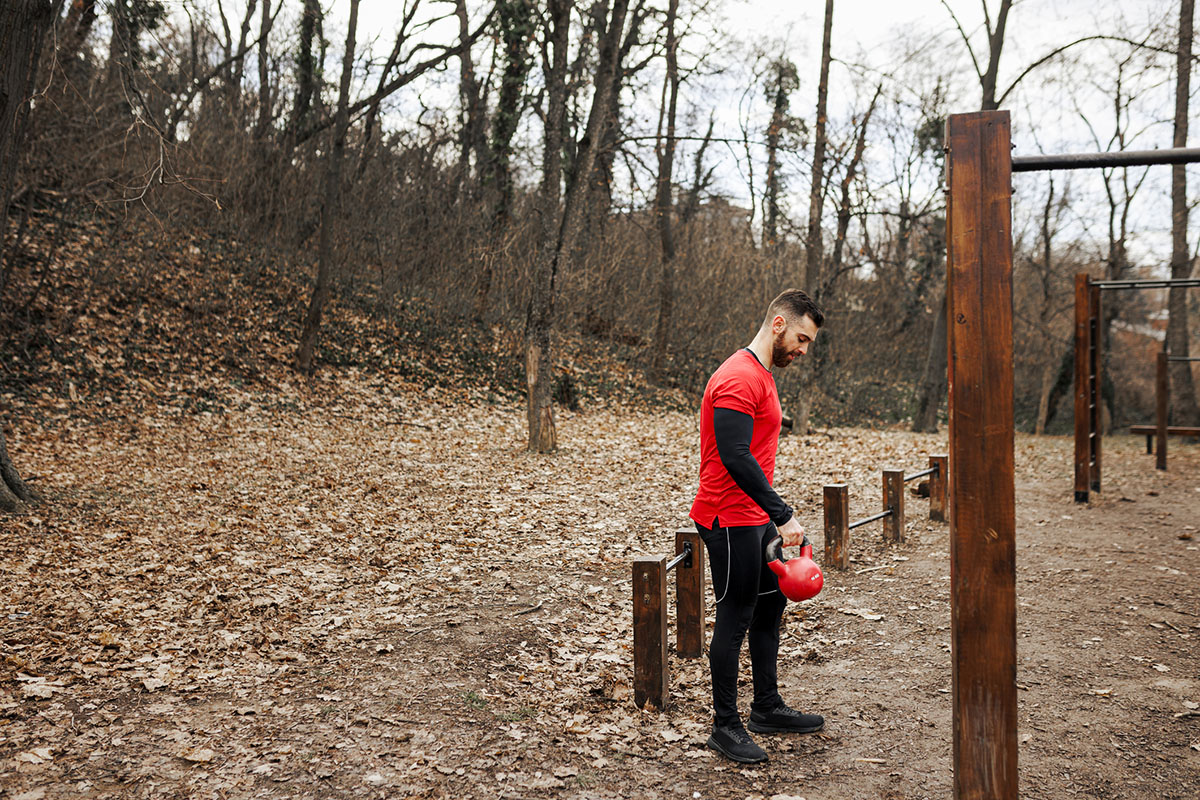
Strength training should be the bedrock of almost any adventure-focused fitness plan, since a strong core and lower body are critical for tackling demanding trails and other rugged landscapes. Compound exercises and big multi-joint movements like squats, bench presses, and pull-ups are great for working more muscle groups in less time.
5. Fuel Your Muscles the Right Way

Bulking up means downing more calories, since you’ll need to consume more than you burn in order to feed muscles and make them grow (just be sure you don’t add more than your body needs or the surplus will be stored as fat). Gaining muscle requires getting adequate protein, which should be consumed within three hours of a workout, as well as healthy, nutrient-dense carbohydrates and fats. Roughly 15% protein, 55% carbs, and 30% fats is a generally recommended mix. And remember, muscles do their growing between workouts, so give your body at least one day a week to rest and recover.
